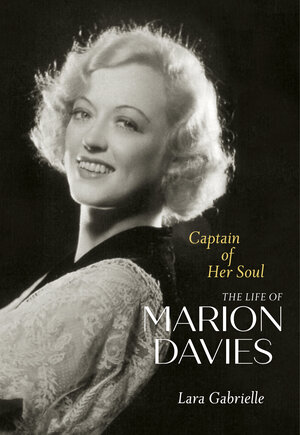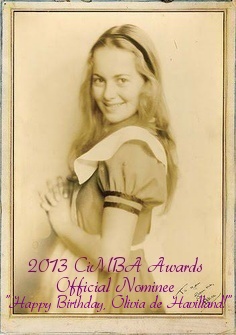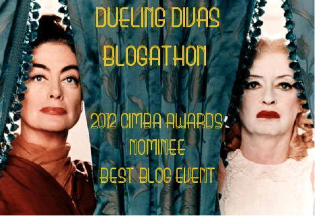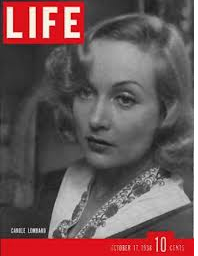
In response to Sarah Huckabee Sanders’ ousting from the Red Hen Restaurant in Lexington, VA on Friday, I wrote a tweet detailing one of my favorite Hollywood stories about standing up for core principles and values. To my great pleasure and surprise, the tweet has gone legitimately viral. Reactions have been overwhelmingly positive, and I wanted to tell the whole story here where I have more space.

In 1951, Grace Kelly was an up-and-coming star in Hollywood. She had grown up in Philadelphia, a member of an aristocratic Irish Catholic family, and fell in love with acting and theatre under the wing of her uncle, George Kelly, a renowned playwright and director. 1951 saw her first major role in a motion picture, High Noon, which had given her almost overnight stardom.
At home in Philadelphia, in the words of her biographer Donald Spoto, Grace “never understood prejudice.” She was partly raised by her family valet, an African-American man whom she called “Fordie,” and whom she always credited as one of the major foundations of her early life. She asked his advice and followed it, regarding him as a third parent. In addition, her uncle George was gay. It was not a secret within the family, but she witnessed her uncle’s ostracism from society and that influenced her profound sense of awareness of the LGBT community. Later in life, she was known for immediately coming to the defense of gays and lesbians, whenever something derogatory was said about their sexuality.
Josephine Baker was born in Missouri in 1906. She suffered a harrowing childhood, from which she escaped into the world of vaudeville. Because of segregation and other limitations on people of color, she decided that her best chance at success was to go to New York, where she danced at the Plantation Club and Adelaide Hall. She found financial success as a chorus girl in Shuffle Along and The Chocolate Dandies, becoming known as “the highest paid chorus girl on Broadway,” but was never a featured performer.

At age 19, she signed with a French/American business team aiming to bring an all-black revue to Paris, and she opened in La Revue Nègre at Le Théâtre des Champs-Élysées. In France, Baker found performing and living to be wildly different than in the United States. She was an instant hit with the Parisian public, and decided that this is where she could have the most impact. After the European tour, she broke her contract with La Revue Nègre and returned to Paris to appear in the Folies Bergères. Baker starred in three films and thrilled audiences with her performances, including La Danse sauvage (which she performed with minimal clothing). Ernest Hemingway called her “the most sensational woman anyone ever saw,” and she rose up as a phenomenal entertainer, the toast of Paris, called by the French “la grande diva magnifique.” Baker enjoyed immense privilege and wealth in Paris, but she never attained the same respect in the United States. American audiences were put off by Baker’s sensual performances and small voice, and after one failing tour back to the United States, she married a French industrialist, moved to France permanently, and gave up her American citizenship. During World War II, she served as an active member of the French Resistance, carrying messages written in invisible ink in her sheet music. She housed volunteers and helped them with visas, and after the war was awarded the Croix de Guerre, the Rosette de Résistance, and the Chevalier d’Honneur by Charles de Gaulle.
A superstar in 1951, Baker returned to the United States to sing in Miami and then went to New York to celebrate being named NAACP’s “Woman of the Year.” On October 16, she entered the famous and exclusive Stork Club restaurant for dinner, but the staff refused her service. Several different anecdotes exist about what exactly happened–some say Baker was seated and then the staff refused to serve her, others say she was refused a table altogether–but Baker was not served.
Grace Kelly, sitting nearby, was witness to the whole affair. Josephine Baker was world famous, and she knew exactly to whom the Stork Club was refusing service. At the point when it was clear that Baker was not going to be served, Kelly stood up, took Baker by the arm, and walked out with her entire party in tow. She vowed never to eat there again.
After this incident, Kelly and Baker became close friends. Kelly accompanied her back to Europe that summer, and the two spent quality time together in Paris and London. In 1956, Kelly married Prince Rainier of Monaco, and even as a princess, Baker was always close to her heart. By 1974, Baker was having severe financial issues and was struggling to support her many beloved adopted children. Her old friend, now Princess Grace, gave her a royal villa to live in with the children, and together with Jacqueline Onassis, she financed Baker’s triumphant comeback in Paris the following year.

Just a few days after her return to the stage, Josephine Baker was found dead of a stroke in her apartment, surrounded by her rave reviews. She is buried at the Cimitière de Monaco, and remains the only American-born woman to receive a funeral with full French military honors.
The nature of the friendship of Princess Grace and Josephine Baker is one that we would do well to remember in this day and age–their friendship, and indeed both of their personalities independent of their friendship, was based on standing up for principle, helping those in need, and eschewing prejudice in all its forms. May we continue to hold them as examples.



























_03.jpg)


Thanks so much for this post. I didn’t know about the friendship between these two women, let alone its origin story! Wonderful! (And congrats on going viral!)
I love it! Thanks for sharing “the story with a message” we should all take to heart.
Thanks so much for this uplifting post. I so appreciate learning more about Miss Baker. Even though Grace was to live a privileged existence, I think she understood those who were facing rejection as she often experienced rejection within her own family.
I am reading a book about Grace Kelly. I decided to do some research on her friendship with Josephine Baker. Their friendship and story is very timely for what is going on in our country right now. I salute Grace Kelly for her refusal to
accept racial bias so many years ago.